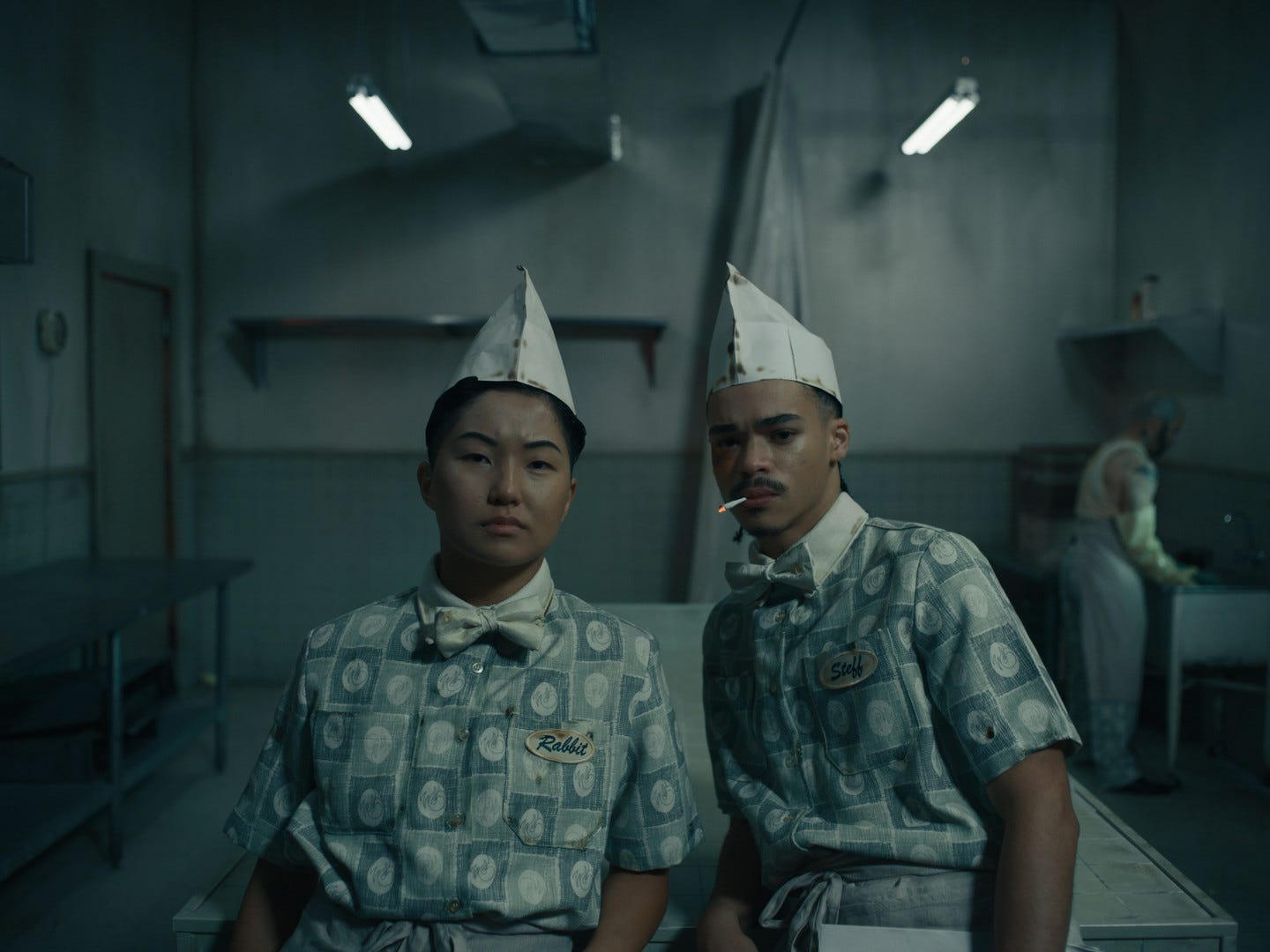AAFF: Playland
The ghosts of the Gay Bar
I’m covering the 62nd Annual Ann Arbor Film Festival, happening virtually from March 26-April 7! Their online slate of programs can be found here.
Encroaching state violence is nothing new to queer life - learning queer history means getting intimate with legacies of police brutality, medical violence, family abuse, ostrazation. What queer people have always had is the ability to make, even for a short while, a world for ourselves. A world where we can be who we are, and who we dream of being. And often, the location of that world is the Nightlife.
The presence of danger hangs over Playland, the debut film by emerging filmmaker Geordon West, like a cloud. The film imagines the ghosts of the Playland Cafe, a gay bar that was open in Boston from 1936 - 1998. The ghosts go about their nightly routine on the eve of the bar’s demolition. Playland is performative and experimental, with very little by way of spoken dialogue between the cafe's ghosts.
Instead, much of the spoken language that we hear in the film is archival footage of either news broadcasters, or the police. West’s bio describes them as a filmmaker who, “looks for the speculative silence of the archive.” The silence between characters echoes with the absences of historical materials. Instead of images of this lost place created by and for the people who made community there, we have are newsreels that place the Playland in “The Combat Zone,” where Boston residents discuss whether or not they are comfortable with the presence of a queer gathering space in their community.
We can have a fantasy of what it was like to be inside the Playland - we can construct a replica, an imagined retrospective. We can try to fill the gap left in the archive. What is queer nightlife, what is drag performance, other than the embodied creation of fantasy? The creation of a place, of a body, that we may not be able to carry through into every moment of our lives, but that we get to embody for the eternal night.
Playland inquires about the archive by embodying its silences. By presenting characters whose lives depended on the space, and who the space depended on. Whose existence lives within that fantastical space of eternal night. It tries to fill the gap in a way that grieves the loss of those historical materials. It enlivenes that absence by reminding us that the eternal night was always, actually, finite, and that at the end of the day, lots of people had an embodied experience of the Playland. Just because we don’t get to see it closely doesn’t mean that it wasn’t there.
There is one moment about a third of the way through the film that spoke volumes to me. As characters move from the bar into the kitchen, the swinging door swings open, revealing the scene happening at the kitchen’s steel prep table. Each time the door opens and closes, we get a glimpse into a private embrace happening in the kitchen, from a distance. Distance is a fixture of Playland We rarely see peoples bodies or faces closely, and archival footage is shown in a deliberately teensy weensie aspect ratio. There are moments of closeness, between the characters and the audience, and between the characters and each other. These moments caused me to gasp and sigh with relief.
I was surprised by the tone of the film based on the writing about it in the festival program: “A raucous work of queer fantasy and history, Playland conjures a time-bending night in Boston’s oldest and most notorious gay bar.” I found the tone of Playland to be incredibly sombre and methodical, not particualrly raucous. It was interesting to me to consider the reasons that someone would come away from this film, or have a vested interest in advertising this film, as a raucous experience. Does the presence of queer lives on screen implicitly create a bombastic aesthetic? Do our funerals need to be pieces of theatre?
Another scene that sticks with me is a moment where two queens are performing a lip sync of a grandiose opera number. One performer is wearing a frilly, but simple pink dress, standing in the foreground of the shot. Another performer, decked out in lavish tassles and make-up that is more legible to a modern audience as “drag,” stands behind, shroud in a bit more darkness. When I think of this image, I think of the way that queer culture and the expression of queer fantasy was able to evolve through the lifetime of the Playland Cafe. It makes me wonder what can happen as the atmopshere of queerness, and queer nightlife, changes in the 21st century, and how the queer community can hold those changes and that history at the same time. This is one of Playland's core questions for me. Watch this film with your friends and talk about the future.

